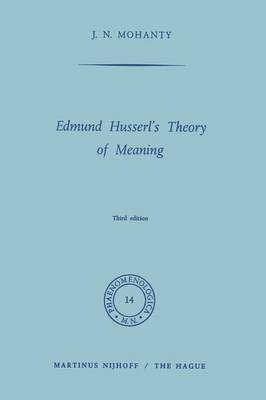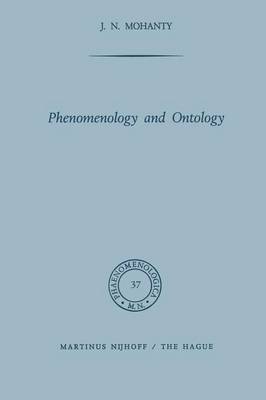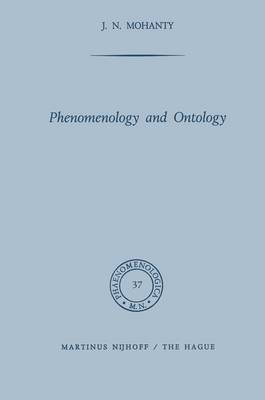Phaenomenologica
3 primary works
Book 14
In this work I have tried to present HusserI's Philosophy of thinking and meaning in as clear a manner as I can. In doing this, I had in mind a two-fold purpose. I wanted on the one hand to disentangle what I have come to regard as the central line of thought from the vast mass of details of the Logische Unter suchungen and the Formale und transzendentale Logik. On the other hand, I tried to take into consideration the immense developments in logic and semantics that have taken place since HusserI's major logical studies were published. It is my belief that no one to day can look back upon the philosophers of the past except in the light of the admirable progress achieved and consolidated in the fields of logic and semantics in recent times. Fortunately enough, from this point of view HusserI fares remarkably well. He certainly anticipated many of those recent investigations. What is more, a true understanding and appraisal of his logical studies is not possible except in the light of the corresponding modern investigations. This last consider ation may provide us with some explanation of the rather puzzling fact that orthodox HusserIian scholarship both within and outside Germany has not accorded to his logical studies the central importance that they, from all points of view, unmis takeably deserve.
Book 37
Most of the essays that follow have originally appeared in philosophical journals, Indian and Western. They are reprinted here with the hope that in spite of the wide variety of topics with which they deal there is nevertheless a certain unity of treatment. A few major ideas and distinctions run through all the essays: I need not further single them out here. For permission to reprint, I have to thank the editors of the journals and books in which the essays originally appeared. My former pupil Miss Manjusree Ray has been kind enough to help me in preparing the book for the press. J. N. MOHANTY May, I968, Calcutta CONTENTS Preface v Part One I. Modes of Givenness 3 II. The Given 12 III. Thought and Action 22 IV. Meaning and Truth-I 0 3 V. Meaning and Truth-II 50 VI. Language and Reality 60 VII. On Reference 2 7 VIII. Remarks on the Content Theory 84 IX. Phenomenology and Ontology 2 9 Part Two X. A Note on Modern Nominalism I07 XI. A recent Criticism of the Foundations of Nicolai Hartmann's Ontology II5 XII. Remarks on Nicolai Hartmann's Modal Doctrine 129 XIII. The 'Object' in Edmund Husserl's Phenomenology 138 XIV. Individual Fact and Essence in Edmund Husserl's Philosophy 152 XV. Gilbert Ryle's Criticisms of the Concept of Conscio- ness 163 XVI. On G. E. Moore's Defence of Common sense 170 Part Three XVII.
Book 37
Most of the essays that follow have originally appeared in philosophical journals, Indian and Western. They are reprinted here with the hope that in spite of the wide variety of topics with which they deal there is nevertheless a certain unity of treatment. A few major ideas and distinctions run through all the essays: I need not further single them out here. For permission to reprint, I have to thank the editors of the journals and books in which the essays originally appeared. My former pupil Miss Manjusree Ray has been kind enough to help me in preparing the book for the press. J. N. MOHANTY May, I968, Calcutta CONTENTS Preface v Part One I. Modes of Givenness 3 II. The Given 12 III. Thought and Action 22 IV. Meaning and Truth-I 0 3 V. Meaning and Truth-II 50 VI. Language and Reality 60 VII. On Reference 2 7 VIII. Remarks on the Content Theory 84 IX. Phenomenology and Ontology 2 9 Part Two X. A Note on Modern Nominalism I07 XI. A recent Criticism of the Foundations of Nicolai Hartmann's Ontology II5 XII. Remarks on Nicolai Hartmann's Modal Doctrine 129 XIII. The 'Object' in Edmund Husserl's Phenomenology 138 XIV. Individual Fact and Essence in Edmund Husserl's Philosophy 152 XV. Gilbert Ryle's Criticisms of the Concept of Conscio- ness 163 XVI. On G. E. Moore's Defence of Common sense 170 Part Three XVII.


